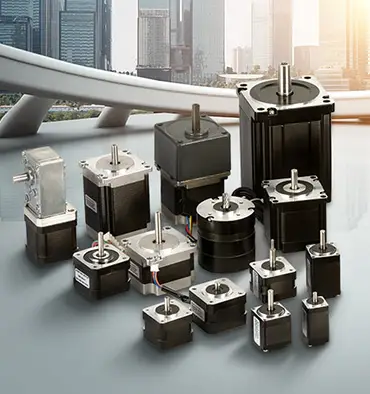Do stepper motors get hot?
The question of whether stepper motors get hot is an important one, as it can have a significant impact on the performance and reliability of the motor. In this article, we will provide a detailed explanation of how stepper motors work, and whether they get hot. We will also discuss the factors that can cause stepper motors to get hot, and why it is important to manage the temperature of stepper motors in order to ensure their optimal performance.
What is a Stepper Motor?
A stepper motor is an electric motor that rotates in discrete steps, or increments, rather than continuously. This makes it ideal for applications where precise control of the motor's position is necessary, such as in printers, scanners, and other types of precision machinery.
Stepper motors are different from other types of motors in that they have a fixed number of steps per revolution. This means that the motor can only rotate in discrete steps, rather than continuously. For example, a stepper motor with 200 steps per revolution will rotate in 200 equal steps, each corresponding to a 1.8 degree increment of rotation.
Do Stepper Motors Get Hot?
Now that we have a basic understanding of how stepper motors work, we can answer the question of whether they get hot. The short answer is that stepper motors can get hot, but it is not a common problem.
Like all electric motors, stepper motors generate heat as a byproduct of their operation. The heat is generated by the movement of the motor's rotor, as well as by electrical losses in the motor's windings. In most cases, the heat generated by a stepper motor is minimal, and does not pose a significant problem.
However, there are certain factors that can cause a stepper motor to get hot. These factors include:
- Overload: Stepper motors are designed to operate within a certain range of loads and speeds. If the motor is subjected to loads that exceed its rated capacity, it may generate more heat than it can dissipate, causing it to get hot.
- Inadequate cooling: Stepper motors require a certain amount of cooling in order to operate properly. If the motor is not provided with adequate cooling, it may generate more heat than it can dissipate, causing it to get hot.
- Faulty components: Stepper motors are complex machines, and are made up of many different components. If any of these components are faulty or damaged, it can cause the motor to generate more heat than it can dissipate, causing it to get hot.
Conclusion
Stepper motors can get hot during operation. The amount of heat generated depends on factors such as the motor's size, the current supplied to it, and the duration of its operation. It's important to ensure that the motor is adequately cooled and that its temperature stays within its rated operating temperature range to prevent damage to the motor or any connected devices.


Leave a Reply